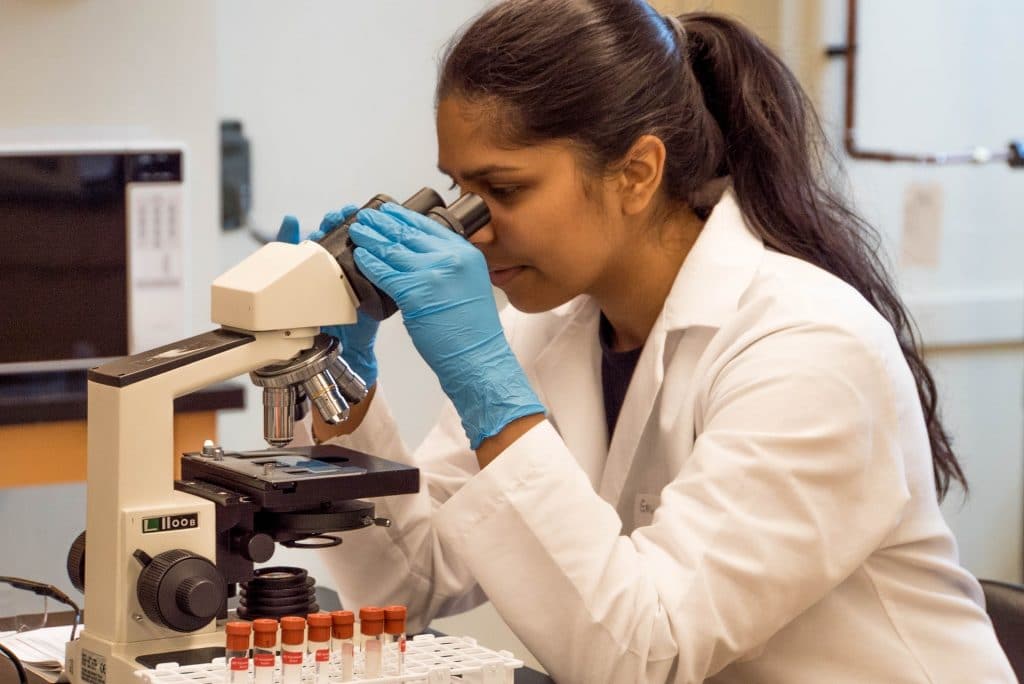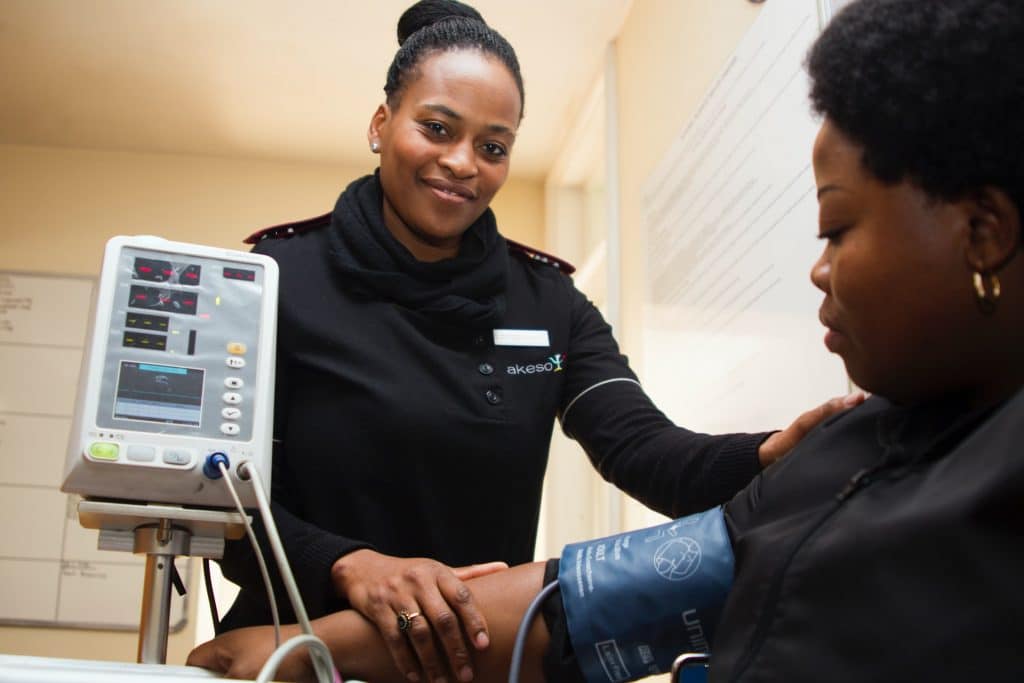If you’re thinking about going to medical school, you want to know the right timeline to make sure you’re going through everything properly. You want to be sure you are prepared for the application phase, the best time to take the MCAT, and more.
Your proper timeline of medical school is all about keeping yourself on track to get through all of those busy years.
What’s the Ideal Time to Start Applying to Medical School?
When you’re ready to start applying for medical school, you want to start as early as possible. That means at least the year before you want to start, but you don’t need to jump into the application process too soon. You want to start in January the year before you’re ready to begin medical school, so you’re prepared for when do medical schools start interviewing.
- January – In this time, you want to start asking for recommendation letters and taking the MCAT. You want to start preparing your personal statements, work and activities, essays, and all other application documents, which you’ll work on through the next few months.
- May – At this time, you want to submit your essays and release your MCAT scores. You will also want to finalize personal statements and sections of your application. This is also when you should be ordering official transcripts, registering for CASPer, and finalizing your shortlist of medical schools. You will also want to make sure you follow up with anyone writing your recommendation letters.
- June – By this time, you want to make sure that your recommendation letters have been submitted and that you’re finishing up any secondary essays. You also want to submit AMCAS.
- July/August – Make sure you submit any of the secondary applications you receive at this point in time. You’ll also want to start preparing for the different admissions interviews that you’ll be required to complete.
- September-May – At this point, you want to start carrying out your interviews with medical schools, sending in your letters of interest, completing any additional forms. You want to go through make sure you’re narrowing things down for your final school.
- October-May – During this period, you’re going to want to look at any offers that have been made. Look at financial aid packages and negotiate those. Then look at the schools more closely and determine which one you’re going to accept. Once you’ve decided on a specific school, you will also want to determine your living arrangements, including renting an apartment or signing for a campus dorm.
- May – July/August – This is when you need to start preparing for your med school program. Make sure you have all of the paperwork turned in, and all documents are finalized. If you are required to select any extra courses, make sure you have done so. Find out who your professors are and get any required textbooks as early as possible, so you have time to go over them. Accept or finalize financial aid, scholarships, and loans and make sure all payments have been made.
- July/August – Start medical school. August is when most programs will begin though you may find one that starts in July. Make sure you have the start date in mind and move into your housing as soon as you can. Prepare for the first day of class by going over your textbooks. Once school starts, make sure you’re putting all of your time and effort into doing the best you can to stay on top of things. This will keep you from getting overwhelmed.
What are the Most Common Medical School Application Deadlines?
When you’re applying to medical school, you want to make sure that you submit that application on time. That can be difficult if you’re not aware of the different deadlines that some apply. Now, the AMCAS has set deadlines, but you also want to look into early admission deadlines in case you’re confident of a specific school you want to attend.
Early admission deadlines are generally August 1st of the year prior to the one you want to attend. If you’re sure which school you want to apply to and you want to improve your chances of getting in, you will want to make sure your application is submitted by then. Failure to do so will mean you’re put into the general admission application process instead.
The general admission deadline for the AMCAS is in the middle of October. You will have the ability to submit your application starting at the beginning of June, however. If you can, submitting your application earlier may be an excellent way to make sure you’re moving toward the head of the pack. It allows your application to be reviewed sooner and increases your chances of getting in if you fall within the average category of applicants.
What is the Most Common Last Month You Can Take the MCAT?
In order to apply to the school you want to attend, you’re going to have to take the MCAT. You need that score to be submitted by the middle of October, just after you submit your AMCAS. This means you need to be very careful about when you take the MCAT to ensure you have your scores back in time to submit by the deadline.
The best way to make sure that you have your MCAT results back in time to submit is to take it at the beginning of the year before you plan to start medical school. You want to take it between January and April of the year prior. Now, this may seem a little early for some people. Especially if you know that the results are released approximately one month after the test is taken.
While you can get your results in as little as one month, this is still a long period of time to wait. Also, you’re going to need the time after April to continue working on essays and applications for medical school, as well as applying and carrying out interviews. You don’t want to be trying to study for the MCAT at the same time as you are doing all of these other things.
Keep in mind also that you may want to take the MCAT more than once to make sure that you have the best possible scores or even that you pass the test at all. This means you should plan to take it for the first time somewhere around the end of your sophomore year or the summer before your junior year. This will give you more time to study and prepare if the first result is not the one you want.
What Happens in First Year (MS1 or M1)?
The first year is only the beginning of four years of medical school, and you will need to get used to the process. This is a difficult time for many because schooling becomes far more difficult in medical school than in a regular school.
During the first year, you will be taking specific courses, likely participating in specific extracurriculars, and going through specific steps to make sure your time is spent well.
- Basic courses – During this period in your medical schooling, you will be taking basic science courses, including anatomy, biochemistry, immunology, microbiology, histology, and embryology. These types of courses form the basis of your medical school learning.
- Lab work – These will build on your basic courses and will allow you to learn more about the human body and many of the processes that take place within it. These lab experiences may also involve minor medical procedures that are performed or practiced on one another within the classroom environment.
- Interviewing patients – This is when you’re going to get your first opportunity to work on interviewing patients. These interviews will generally be more fundamental in nature and will allow you to get an introduction to working with patients in general.
- Evaluation of patients – Alongside the interview process, this is where you’re going to start out evaluating patients as well. You will be responsible for asking questions and evaluating answers as well as forming recommendations.
What Happens in Second Year (MS2 or M2)?
During the second year of your medical schooling, you will be spending a lot of time getting through more of the basics. This is where you’re going to finish out the basic portion of your medical school. That’s because the third year is where you’re going to start on the clinical portion.
- Basic courses – You’re going to continue taking basic courses, including pathology, pharmacology, and other lab courses. These are designed to build a foundation upon which your clinical portion will continue to increase.
- Lab work – You will continue with lab work moving into the second year of your medical school training; however, this will start to focus on more advanced procedures. This is when you will begin to learn more about the human body and the implications of different conditions.
- Interviewing patients – During this time, you will build on the skills that you learned in your first year. Your interviews will apply even more of the information that you have learned and become more detailed.
- Evaluation of patients – You will be building upon your skills in this regard, working with more advanced symptoms and needs by patients. These will continue to be encounters that are engineered rather than real patient interaction.
- Take the USMLE Step 1 – This is the first of your required medical school testing that covers content that you have learned thus far and should be able to apply to different patient situations. Most choose to take this exam after completing their 2nd year. You are allowed to take this test up to three times in any 12-month period if you wish to improve your score.
What Happens in Third Year (MS3 or M3)?
Once you get into the third year of your medical schooling, you will be considered in the clinical experience.
This is where your experience and your education will continue to build, and you will start focusing more on the actual practice of medicine.
- Lectures and didactics – During the third year, you will not spend much time in a classroom (if any). Your lectures and didactics will take place in the same setting as your rotations and will be built-into the process of the rest of your day. These lectures will often focus on the types of things that you are doing during the rotation.
- Rotations – In the third year, you will start working on rotations in hospitals and clinics that your school is associated with. During these rotations, you will work with doctors and other medical staff as well as residents to learn more about interactions with patients.
- Performing medical procedures – During your rotations and during class periods, you will begin working with patients on basic medical procedures. These will generally consist of things like collecting vitals and conducting patient exams. You may also be in charge of gathering notes and information from prior shifts or working with on-call and overnight staff.
- Shelf exams – Each rotation that you take will be accompanied by a shelf exam to review what you learned and how well you learned it. You may also want to look into taking the Step 2 CK exam during this year though it is more commonly taken at the end of the fourth year.
What Happens in Fourth Year (MS4 or M4)?
The fourth-year is the final year of your schooling inside the walls of a classroom. Though by this time you have already gone through a great deal of training in medical facilities as well by way of rotations, once you complete the fourth year, you will begin your residency. This means that your fourth year is crucial in preparing you for your future.
- Rotations – Within this final year, your rotations schedule will likely be increased. You will be completing rotations in several additional fields over and above what you completed in your third-year rotations. These may also involve more hands-on experience with patients.
- Performing medical procedures – In the fourth year, you will be participating even more in medical procedures. This will still be done under supervision, but you will generally be given more freedom and autonomy to take on many of the different procedures or taking exams from patients.
- Take the USMLE Step 2 – At the end of your fourth year, you will generally take the Step 2 exam, which is another of the required exams for your residency program and your degree. This consists of two parts, the CS and CK. Taking this as early as possible means that you can use it to get into residency programs. Some will require you to have the score to apply. That means you may want to look into taking this test earlier in your fourth year.
- Shelf exams – As with the third year, you will be completing a number of rotations during this period, which means you will need to take shelf exams following each rotation. These ensure you are learning the material and that you are able to use and apply it as needed.
Wrapping Things Up: The Timeline of Medical School
When it comes to preparing for medical school, you want to know what to expect before you get there and after you get there.
Make sure you are getting started on the application process as early as possible, generally starting in January of the year before you want to attend. Also, make sure that you are prepared for the intensity of the program itself. This means preparing for the USMLE Step 1 in your second year and the Step 2 in your fourth year.
It also means practicing and preparing for rotations and your residency when you’re done.
If you found this post helpful, you’re definitely going to like our other medical school tips here.
Here are some other interesting medical school study guides:
> How Much Do Doctors Make During Residency?
> What are the Most Common Medical Specialty Stereotypes?

















